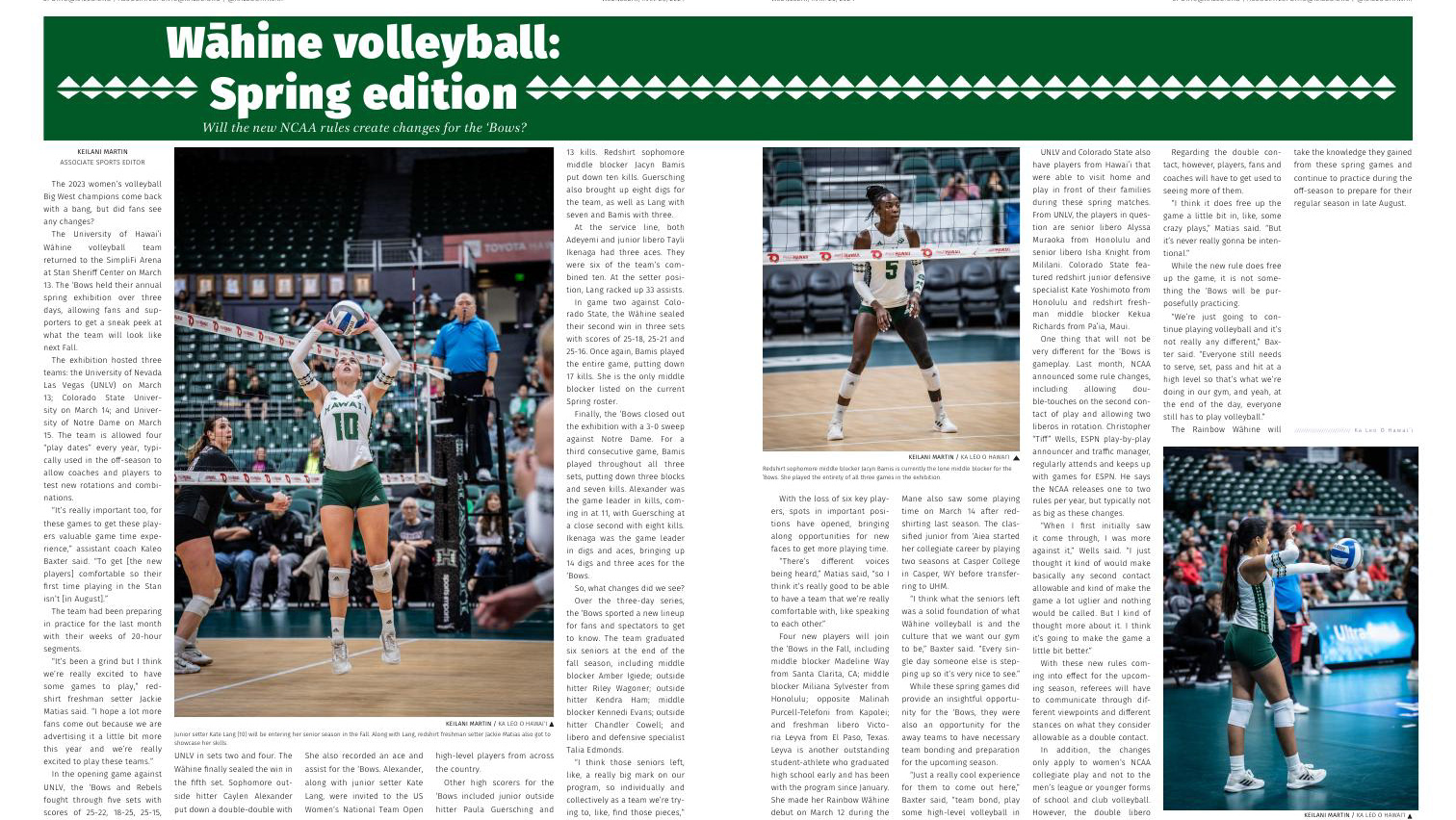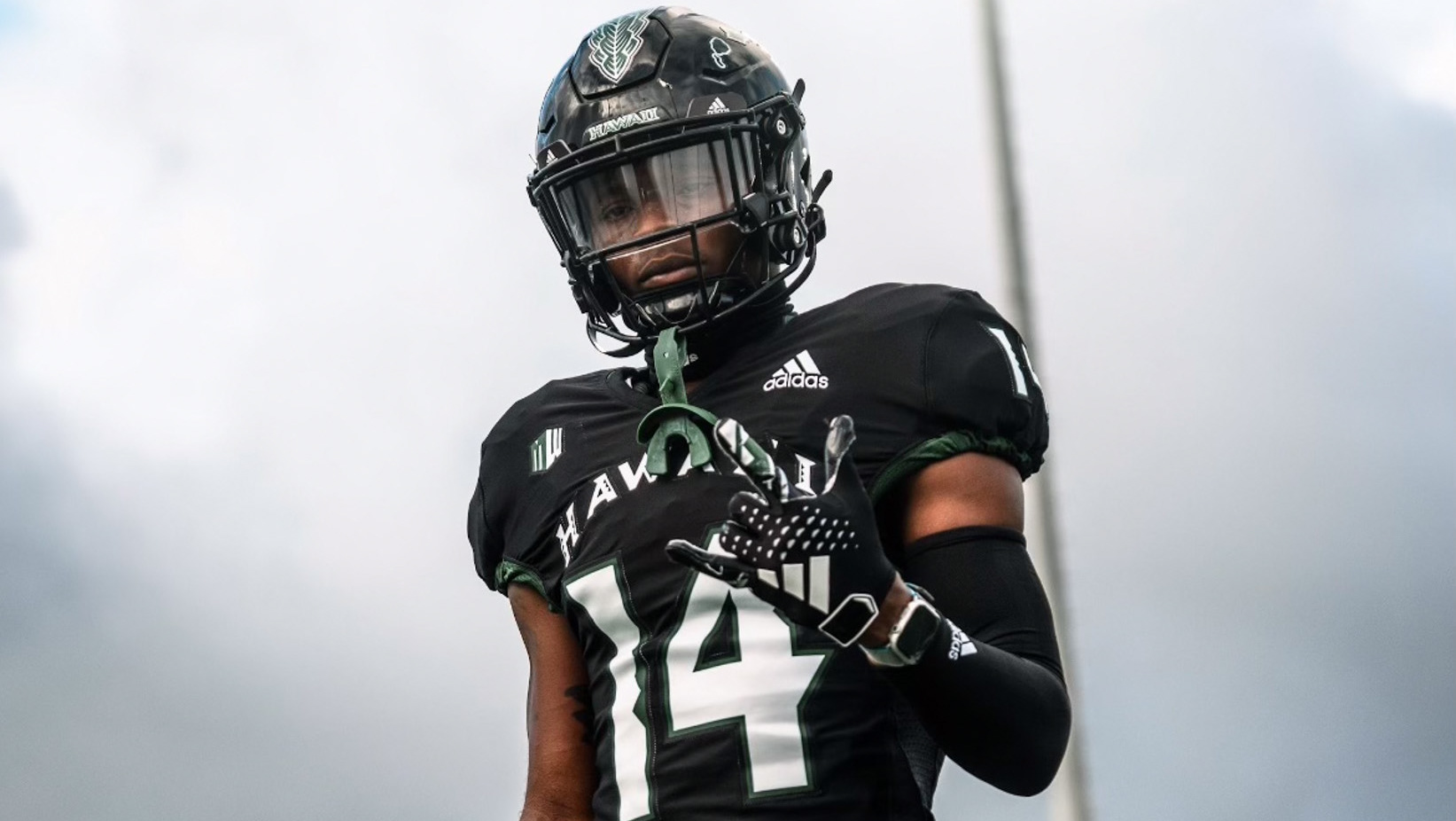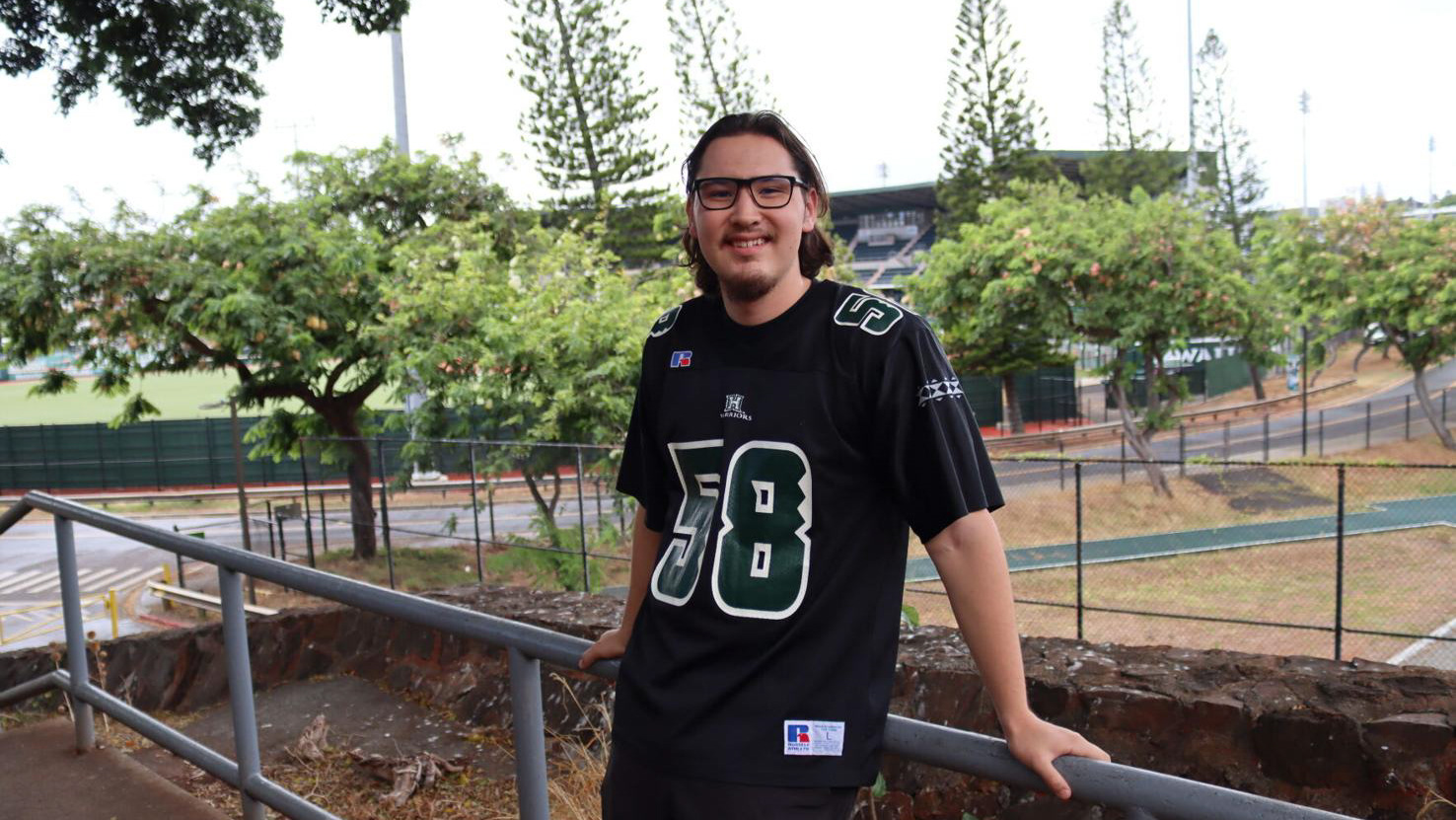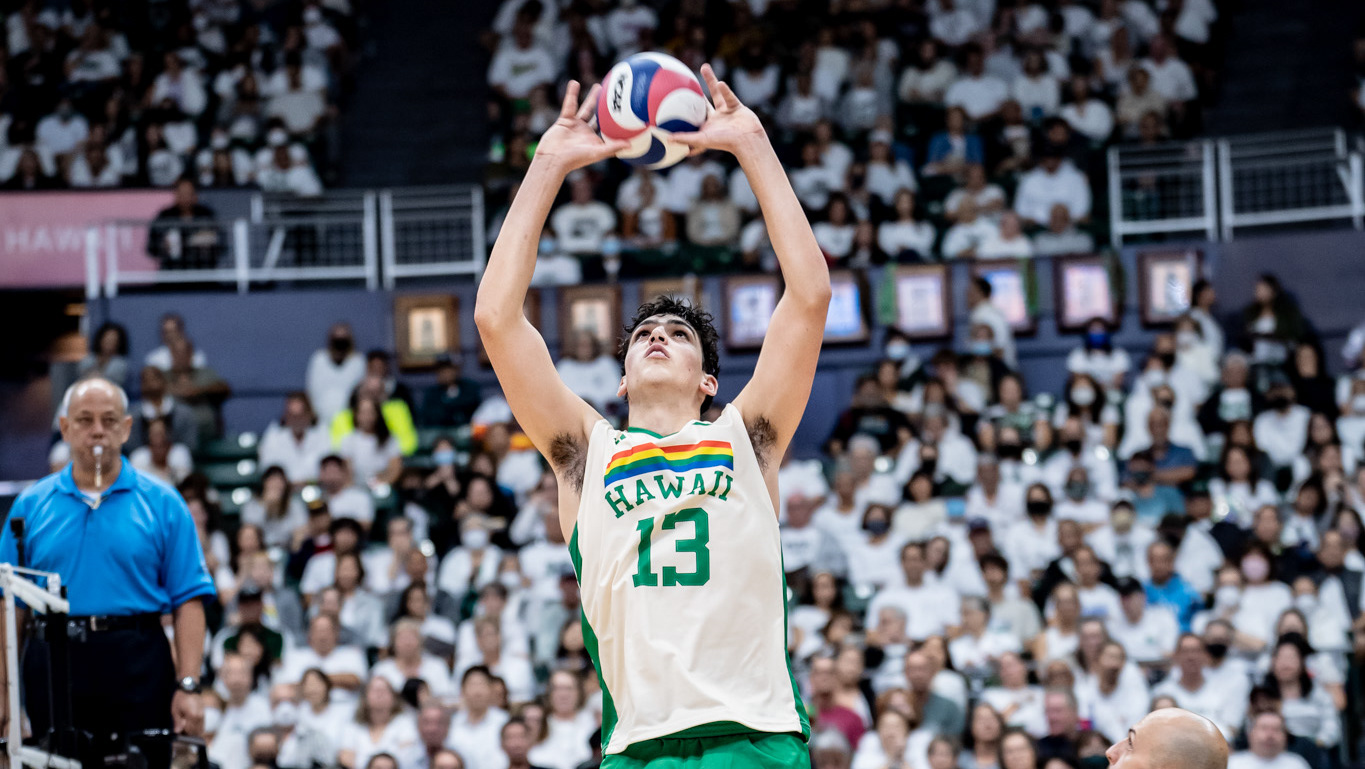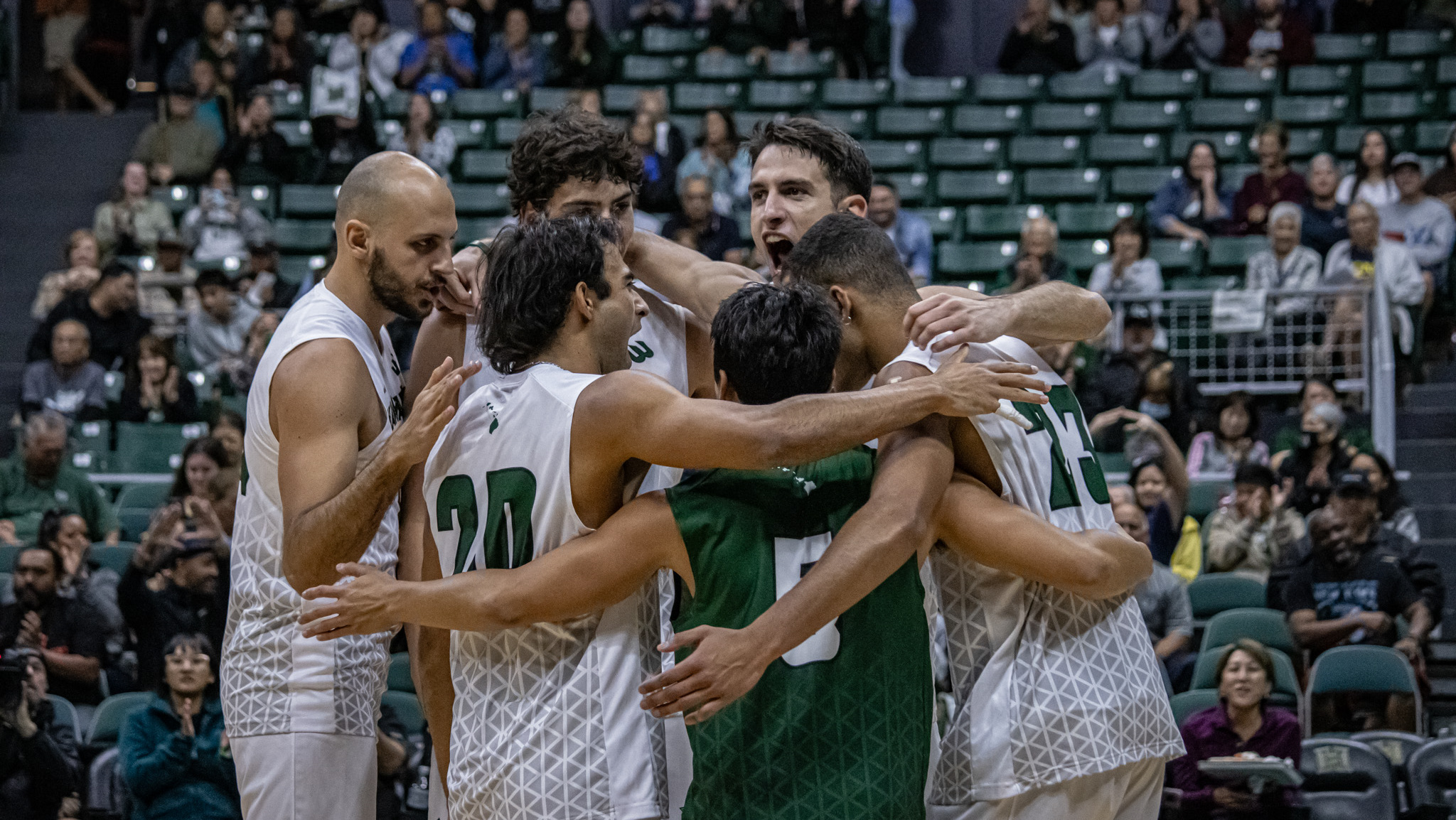As the University of Hawaiʻi men’s volleyball team begins preparing for the upcoming Spring season, they find themselves facing new challengers – this time, across the Pacific Ocean. From Nov. 8 to 16, the Rainbow Warriors embarked on a cross-ocean voyage to Japan. There, they explored the cities of Osaka, Tsukuba, and Tokyo on their Aloha Tour.
This was the team’s first visit back to Japan since the Goodwill Tour in 2018. According to the NCAA rules, the team is allowed to travel outside of the country only once every four years.
They got to learn from and work with a variety of levels within the Japanese volleyball communities including middle school, high school, college, and professionals. The Warriors played two scrimmages over two days against the Osaka Sakai Blazers, a men’s professional volleyball team located in Sakai City, Japan. Each scrimmage consisted of three sets, with UH taking one set per match.
“I’ve never seen a team be so intentional with certain things like serving in a very specific spot or just like core awareness,” UH outside hitter Keoni Thiim said. “We definitely picked up on some of their tactics and learned how to adapt to who we’re playing.”
The Blazers’ club was founded in 1939 and is part of the V. League Division I led by head coach Shinya Chiba. Among them was a familiar Hawaiʻi face. Former UH opposite and middle blocker Cole Hogland is a new addition to the Blazers’ roster this season. Hogland graduated from UHM in 2023 after being part of the team since 2019, contributing to multiple NCAA championships.
“It’s good to see [Hogland] thrive over there in that league,” UH assistant men’s volleyball coach Kupono Fey said. “And it’s different coming from college into that pro atmosphere, so it’s good to see him doing well, it really is.”
At the college level, UH played the University of Tsukuba’s men’s volleyball team in Tsukuba, about a two-hour drive from Tokyo. Instead of a regular scrimmage, Tsukuba hosted “TSUKUBA LIVE! NEXT 50” Hawaiʻi Future Cup on Nov. 15 in front of their home crowd.
This match was a project commissioned by Japan Sports Agency’s Inspiring University Sports Comprehensive Support Project, commemorating the university’s 50th anniversary. According to the program’s website, the goal of this project was to “[expand] the potential of university sports and [create] exchange, excitement, and culture through sports.”
The Warriors won 3-2 in five sets with scores of 25-23, 24-26, 25-20, 22-25, 15-7.
“In terms of volleyball technique and skill, I think they had us,” Thiim said. “They were very disciplined, very technical, and everything they did was very very intentional.”
Tsukuba was the winner of Japan’s university championships last year. “It was [good] to experience a different style of volleyball that we thought would make us better,” junior middle blocker Zach Thompson said. “In Japan, they’re a little bit smaller but they get more digs, pass better and make less mistakes.”
The UH men’s volleyball program hopes to continue to strengthen their relationship with Japan.
“[We’re] really trying to expand connections with Japan and hopefully bringing them out in the future here and doing another match,” Fey said. “And who knows, maybe we’ll have some Japanese recruits as well come play for the University of Hawaiʻi, and that would be a really special experience.”
The exhibition was made possible largely through the help and coordination of Yutaro Takada, Hawaiʻi Athletics’ marketing specialist and video-board manager. Takada is an alumnus of Tsukuba University, graduating in 2018 with his master’s in health and sports science.
During the trip, UH also shared their volleyball skills and tips in a youth training clinic. With the occasional use of a translator and playing a lot of charades, the Warriors worked on trying to help strengthen the student-athlete’s skills on the court. “It was my first time doing anything like that so it was super nice,” Thompson said. “It felt pretty good.”
Over the course of the eight-day trip to Japan, the team was also able to strengthen their relationship with Japanese culture. Takada created the itinerary for the trip, making sure to include some of his recommended spots for the team to enjoy.
“He gave us a lot of cool sightseeing places,” Thiim said, “and we got to see a couple of temples and castles and stuff and it was nice we got to walk around and take a bunch of pictures and try a bunch of new foods.”
The first half of the trip took place in Osaka, a city with an estimated population of around 19-million and widely known for their love of food. Some of the team got to explore the Dotonbori district popular with tourists. The area is renowned for its entertainment and features extravagant signage, numerous neon lights, and large selection of bars and restaurants. A local expression often used to describe the area is “Osaka Kuidore” which is meant to mean “Osakans eat themselves into debt.” While this may sound intense, it just means the food is so good you’ll want to try everything even if your wallet cries.
We had free time so me and the team walked through the Dotonbori, and it was super fun,” Thompson said. “So my teammates ate like $200 wagyu steak.”
The team and staff also got to enjoy a traditional Japanese meal in Tsukuba, complete with great service, great dishes and no shoes.
“One of the donors,” Fey said, “they took us to a very old traditional restaurant where WWII soldiers kind of higher ups would eat dinner before being sent off to war.”
The food itself maintained its traditional style decades later. Players and coaches were also impressed by the attentive service by the staff. “They’re very aware and very eager to just kind of help you and serve you as fast as they can,” Thiim said. “And that was really cool.”
The team also spent some time volunteering in Tsukuba. During one of the days on the trip, the team split into two groups. One group went to a local nursing home, and the other went to a children’s preschool.
“I was at the preschool so that was super nice,” Thompson said. “We just did like origami with them and then taught them our names in Japanese and we wrote their names in English.”
“I think it helped me grow as a player because they’re really high level over there,” Thompson said. “Getting to experience something I never seen before, like a different style, helped me grow a lot. Helped me realize what I have to improve on.”
“I think it strengthened the teamwork,” Fey said. “[It] gave us a lot of insight on who’s going to be, you know, ‘the guy’ this year or this starting six, and who’s going to be valuable and important. So definitely as a coach, I think it was really valuable to just build that chemistry and that camaraderie.”
Back on Oʻahu, the Rainbow Warriors will continue to prepare for the upcoming 2024 season as they welcome nine new Warriors.
